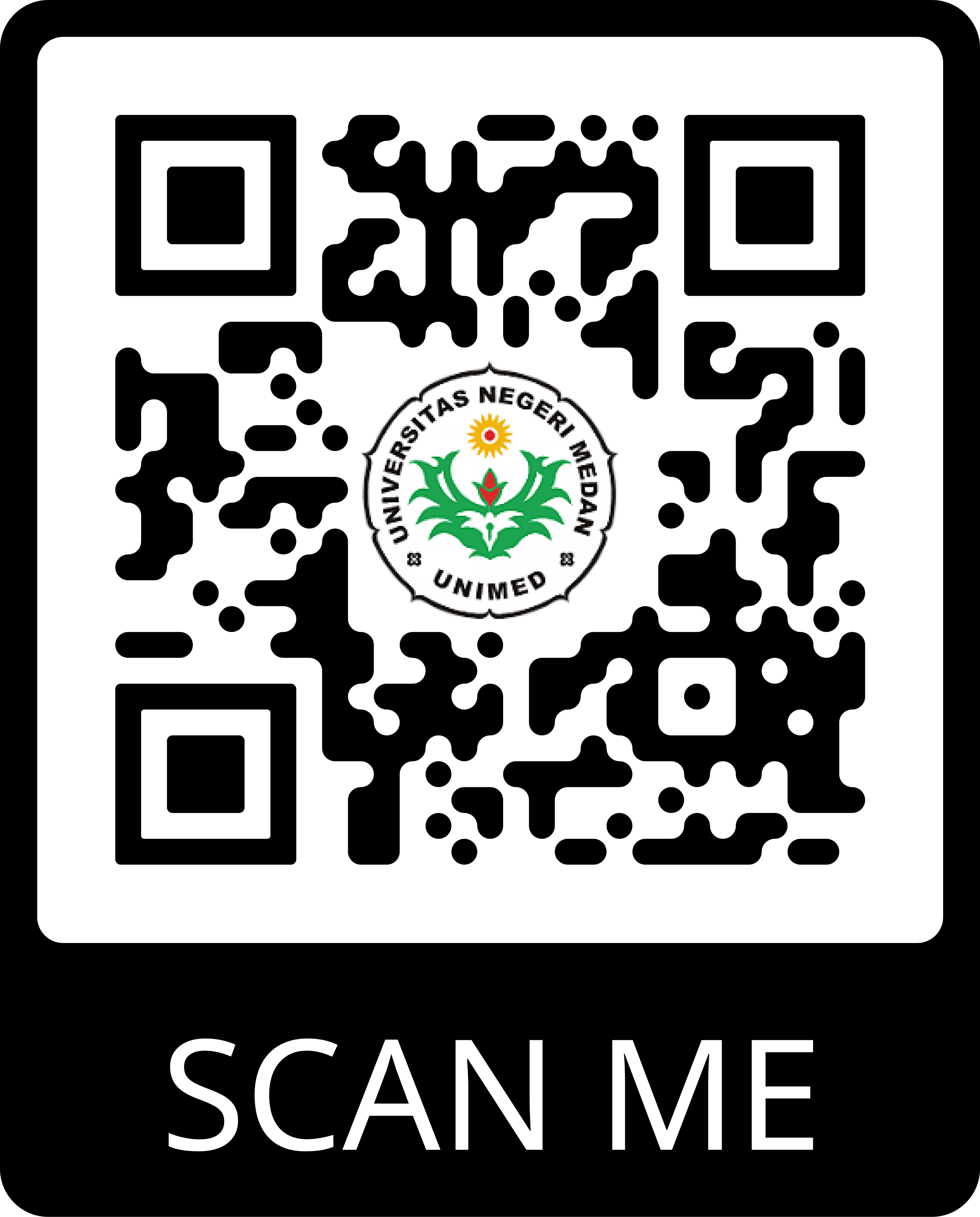DEVELOPMENT OF PHYSICAL TEST INSTRUMENTS BASED ON THE CONCEPTUAL KNOWLEDGE DIMENSION OF THE REVISION BLOOM TAXONOMY
Abstract
Keywords
Full Text:
PDFReferences
Arifin, Z. (2010). Evaluasi Pembelajaran: Teori dan Praktik. In Historische Literatur. https://doi.org/10.1177/1077800408324210
Arifin, Z. (2012). Evaluasi pembelajaran. Bandung: Remaja Rosdakarya. https://doi.org/979-692-956-2
Arikunto, S. (2008). Prosedur Penelitian Suatu Pendekatan Praktik. Jakarta: Rineka Karya.
Boorman, E. D., & Rushworth, M. F. S. (2009). Conceptual Representation and the Making of New Decisions. Neuron. https://doi.org/10.1016/j.neuron.2009.09.014
Brad, A. (2011). A Study of the Problem Solving Activity in High School Students: Strategies and Self-Regulated Learning. Acta Didactica Napocensia, 4(1), 21–30.
Chavda, P., Misra, S., & Duttaroy, B. (2015). Item analysis of multiple choice questions based undergraduate assessment in community medicine. South-East Asian Journal of Medical Education. https://doi.org/10.4038/seajme.v9i1.101
Djaali, & Muljono, P. (2008). Pengukuran dalam Bidang Pendidikan. Jakarta: Grasindo.
Duschl, R. (2008). Science education in three-part harmony: Balancing conceptual, epistemic, and social learning goals. Review of Research in Education. https://doi.org/10.3102/0091732X07309371
Erceg, N., Marušić, M., & Sliško, J. (2011). Students’ strategies for solving partially specified physics problems. Revista Mexicana de Fisica E.
Fang, S. C., Hsu, Y. S., Chang, H. Y., Chang, W. H., Wu, H. K., & Chen, C. M. (2016). Investigating The Effects of Structured and Guided Inquiry on Students’ Development of Conceptual Knowledge and Inquiry Abilities: A Case Study in Taiwan. Journal of Science Education, 38(12), 1945–1971.
Hadi, S. (2013). Pengembangan Computerized Adaptive Test Berbasis Web. Yogyakarta: Aswaja Pressindo.
Kara, F., & Çelikler, D. (2015). Development of Achievement Test : Validity and Reliability Study for Achievement Test on Matter Changing. Journal of Education and Practice.
Krathwohl, A. and. (2001). A Taxonomy For Learning, Teaching And Assesing. New York: Addison Wesleylongman.
Lichtenberger, A., Wagner, C., Hofer, S. I., Stern, E., & Vaterlaus, A. (2017). Validation and structural analysis of the kinematics concept test. Physical Review Physics Education Research. https://doi.org/10.1103/PhysRevPhysEducRes.13.010115
Mahaputri, N. L. P., & Dantes, N. (2013). Pengembangan tes prestasi belajar berbasis taksonomi Anderson dan krathwohl pada kompetensi dasar fisika Smk kelas x semester ganjil se-kota singaraja. Jurnal Penelitian Dan Evaluasi Pendidikan Indonesia, 3.
Matondang, Z. (2009). Validitas dan Reliabilitas Suatu Intrumen Penelitian. Jurnal Tabularasa PPS Unimed. https://doi.org/10.4028/www.scientific.net/amm.496-500.1510
Ornek, F., Robinson, W. R., & Haugan, M. P. (2008). What Make Physics Difficult? International Journal of Environmental & Science Education, 3(1), 30–34.
Rahmawati, Rustaman, N. Y., Hamidah, I., & Rusdiana, D. (2018). The Development and Validation of Conceptual Knowledge Test to Evaluate Conceptual Knowledge of Physics Prospective Teachers on Electricity and Magnetism Topic. Jurnal Pendidikan IPA Indonesia, 7(4), 483–490.
Rittle-Johnson, B., & Star, J. R. (2009). Compared With What? The Effects of Different Comparisons on Conceptual Knowledge and Procedural Flexibility for Equation Solving. Journal of Educational Psychology. https://doi.org/10.1037/a0014224
Sadaghiani, H. R., & Pollock, S. J. (2015). Quantum mechanics concept assessment: Development and validation study. Physical Review Special Topics-Physics Education Research, 11(1), 101–110.
Streveler, R. A., Litzinger, T. A., Miller, R. L., & Steif, P. S. (2008). Learning conceptual knowledge in the engineering sciences: Overview and future research directions. Journal of Engineering Education. https://doi.org/10.1002/j.2168-9830.2008.tb00979.x
Sugiyono. (2017). Metode Penelitian. Bandung: Alfabeta.
Supranata, S. (2009). Analisis, validities, realibilitas dan interpretasi hasil tes. Jakarta: Erlangga.
Tanjung, Y. I., Panggabean, D. D., & Sudama, T. F. (2018). The Development of The Mathematical Physics Module Based on Self Regulated Learning. International Journal of Sciences : Basic and Applied Research (IJSBAR), 39(1), 11–20.
Walsh, L. N., Howard, R. G., & Bowe, B. (2007). Phenomenographic study of students’ problem solving approaches in physics. Physical Review Special Topics - Physics Education Research. https://doi.org/10.1103/PhysRevSTPER.3.020108
Wijayanti, P. ., Mosik, & Hindarto, N. (2010). Eksplorasi Kesulitan Belajar Siswa Pada Pokok Bahasan Cahaya dan Upaya Peningkatan Hasil Belajar Melalui Pembelajaran Inkuiri Terbimbing. Jurnal Pendidikan Fisika Indonesia, 6, 1–5.
DOI: https://doi.org/10.22611/jpf.v8i2.14831
Article Metrics
Abstract view : 603 timesPDF - 1116 times
Refbacks
- There are currently no refbacks.
Copyright (c) 2019 Yul Ifda Tanjung

This work is licensed under a Creative Commons Attribution 4.0 International License.
___________________________________________________________________________________________________________________________________________
Jurnal Pendidikan Fisika
p-ISSN : 2252-732X | e-ISSN : 2301-7651
Organized by The Magister of Physics Education Departement in State University of Medan in collaboration with Physical Society of Indonesia (PSI)
W: https://jurnal.unimed.ac.id/2012/index.php/jpf/index
E : jpfunimed@unimed.ac.id
rajo.hasim@gmail.com (principal contact)

_____________________________________________________________________________________________________________________________________________

This work is licensed under a Creative Commons Attribution 4.0 International License.





